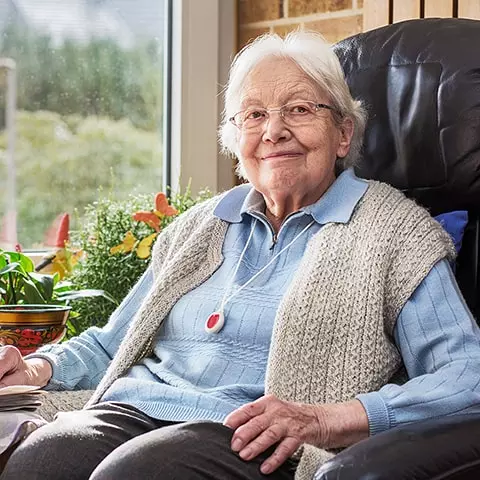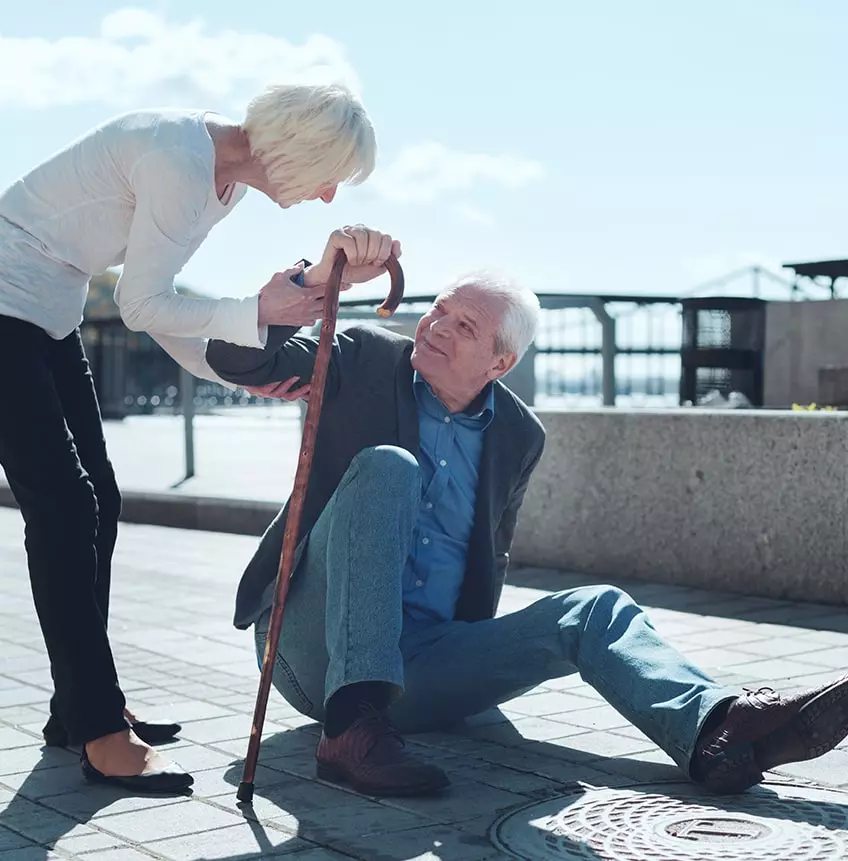
Knee surgery can be a daunting experience for anyone, but it can be especially challenging for older individuals. Maintaining mobility and regaining strength in the knee joint after an operation is crucial for their overall well-being and quality of life. In this article, we'll explore the importance of knee rehabilitation in the elderly population and highlight the benefits of maintaining mobility during the recovery process.
Preventing muscle atrophy:
Following knee surgery, immobility is often necessary for initial healing. However, prolonged inactivity can lead to muscle atrophy, weakening the surrounding muscles. Mobilizing the knee joint through gentle exercises helps prevent muscle loss and facilitates a faster recovery.
Find YOUR ideal care home NOW!
Enhancing joint function:
Regular mobility exercises are vital for preserving joint function. Gentle movements and range-of-motion exercises help reduce stiffness, improve circulation, and maintain flexibility in the knee joint, promoting overall joint health.
Reducing complications:
Extended periods of immobilization post-surgery can increase the risk of complications such as deep vein thrombosis (DVT) and pressure sores in elderly patients. Keeping the knee joint mobile helps mitigate these risks by enhancing overall blood circulation and reducing the likelihood of complications.
Speeding up recovery:
Tailored rehabilitation exercises are instrumental in accelerating the healing process. Physical therapy sessions help patients regain strength, stability, and balance, enabling them to return to their daily activities sooner and promoting a faster recovery overall.
Improving quality of life:
Maintaining mobility post-surgery is paramount for an improved quality of life among elderly patients. The ability to walk, climb stairs, and perform daily tasks independently significantly contributes to their overall well-being and fosters a sense of independence.
Rehabilitation exercises:
Rehabilitation after knee surgery involves a comprehensive regimen of exercises and physical therapy sessions. These exercises focus on increasing range of motion, strengthening muscles, improving balance and stability, and enhancing endurance, all of which are crucial for a successful recovery.
Consultation with healthcare professionals:
Elderly patients must consult healthcare professionals to ensure their rehabilitation plan is tailored to their specific needs and abilities. A customized approach considers factors such as age, overall health, and the type of surgery performed, optimizing the recovery process.
Rehabilitation Exercises for Preventing Muscle Atrophy
| Exercise | Purpose | How to Perform |
|---|---|---|
| Ankle Pumps | Improves circulation and prevents blood clots. | Move your foot up and down while seated or lying down. |
| Seated Knee Extensions | Strengthens the quadriceps muscles. | Sit with feet flat, then extend one leg at a time and hold. |
| Heel Slides | Enhances knee flexibility and range of motion. | Lie on your back and slowly slide your heel toward your buttocks. |
| Leg Raises | Maintains muscle strength in the legs. | Lift your straightened leg while lying or sitting. |
| Assisted Knee Bends | Prevents stiffness and increases mobility. | Use a towel or strap to gently bend the knee while lying down. |
Recovering mobility after knee surgery in later life?
After knee surgery, rehabilitation and mobility support are essential for regaining independence, reducing the risk of falls and maintaining confidence in daily activities. For older adults, recovery can take longer and often requires consistent assistance with exercises, movement and everyday tasks. When rehabilitation becomes difficult to manage safely at home, families may begin to consider whether additional care support could help ensure a smoother recovery. Senior Home Plus offers free, impartial guidance to help families understand care and nursing home options across the UK when mobility and recovery needs increase.
Get guidance on care optionsFree guidance • No obligation
Knee surgery can indeed be a transformative solution for elderly patients suffering from knee problems. However, the journey to full recovery doesn't end in the operating room. With the right exercises and guidance from healthcare professionals, elderly patients can navigate their recovery journey with confidence, reclaiming their independence, and enjoying a higher quality of life post-surgery.
FAQ:
1. What causes muscle atrophy after knee surgery?
Muscle atrophy occurs due to prolonged inactivity, as the muscles surrounding the knee weaken from lack of use.
2. How can I prevent muscle atrophy after knee surgery?
Engage in gentle exercises such as ankle pumps, knee extensions, and leg raises to keep muscles active and promote circulation.
3. When should I start rehabilitation exercises after knee surgery?
Rehabilitation usually begins within the first 24-48 hours post-surgery under medical supervision.
4. What are the best exercises to prevent muscle loss after knee surgery?
Heel slides, straight leg raises, seated knee extensions, and assisted knee bends are highly effective.
5. How does muscle atrophy affect recovery time?
Severe muscle loss can delay recovery, making it harder to regain strength and mobility.
6. Can physical therapy help with preventing muscle atrophy?
Yes, a structured physical therapy plan helps restore strength, flexibility, and balance after surgery.
7. What are the risks of not exercising after knee surgery?
Risks include muscle atrophy, joint stiffness, deep vein thrombosis (DVT), and prolonged recovery time.
8. How often should I do rehabilitation exercises?
Typically, rehabilitation exercises should be done 2-3 times a day as per your physiotherapist’s recommendations.
9. Can a lack of movement after surgery lead to complications?
Yes, prolonged immobility increases the risk of blood clots, muscle loss, and delayed healing.
10. How long does it take to regain muscle strength after knee surgery?
Recovery varies, but with consistent exercises and physiotherapy, most patients regain significant strength within 6-12 weeks.
Need help finding a care home?
Senior Home Plus offers free personalized guidance to help you find a care facility that suits your health needs, budget, and preferred location in the UK.
Call us at 0203 608 0055 to get expert assistance today.
Search for Care Homes by Region in the UK
| East Midlands | Eastern | Isle of Man |
| London | North East | North West |
| Northern Ireland | Scotland | South East |
| South West | Wales | West Midlands |
| Yorkshire and the Humber |
Share this article :
Latest posts
You are looking for an establishment for your loved one ?
Get availability & prices
Fill in this form and receive
all the essential information
We would like to inform you of the existence of the opposition list for telephone canvassing.










